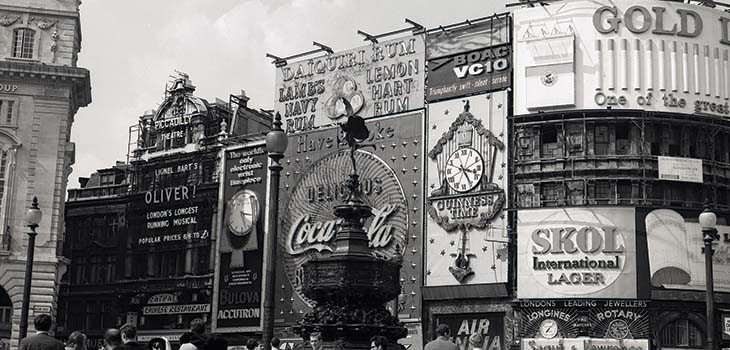
I joined the legal profession in 1956 as an articled clerk in a mainly trade union firm in Chancery Lane. I had two law degrees but soon realised these were of little practical use. None of my three fellow trainees had degrees and only one of the five partners did. The solicitors and trainees had taken the professional examinations, or were in the process of doing so, but in the office the focus was on practicalities—mostly processing personal injury claims for union members injured at work.
Articles was a personal contractual agreement with an individual solicitor. Mine was with Dennis Gordon, a Labour councillor and unsuccessful Parliamentary candidate. A man of great energy, he founded the Holborn Law Society, and both founded and edited the Law Guardian, which later merged with the Law Society Gazette. I sat at the end of his desk watching him conduct interviews with clients and witnesses, and negotiating with insurance company representatives. Unresolved cases were sent to counsel. Most of the more obvious legal work of preparing and lodging papers for court hearings was done by clerks with no formal legal qualifications.
I read Dennis’s files, and accompanied him to court where we sat behind—or in the case of a QC, in front of—the barrister he was instructing. In contrast to the customary deferential silence of the solicitor in court with counsel, Dennis frequently interrupted with loudly whispered advice. He was not happy in a subordinate role.
Learning on the job
I learned much by observation and later by being allowed to do much of the work myself, with little supervision. There was no training programme or indeed any training at all. After three years—or five years in the case of those without degrees—and having passed the final exam, we were officially licensed to set up in practice, alone if we chose to. After six months doing conveyancing in a Mayfair commercial firm, I joined an old school friend in partnership.
Why did we want to be solicitors? The professions were the path to security and status. We were assured of a middle-class income and the privileges that went with it. The solicitor was still typically the ‘man of business’ exemplified by Soames Forsyte and his father in the Galsworthy novels. Trade union lawyers were an anomaly and legal aid was in its infancy.
My fellow articled clerks later moved into more traditional fields. One joined a firm of insurance solicitors. Another established his own, mainly commercial, practice. A third joined a client in business and became a tycoon in the food industry.
In the 1950s economic barriers to entry to the legal profession determined its composition. Many articled clerks were unpaid. On the contrary, the practice still survived of paying for the privilege of articles with a ‘premium’. I was not aware until many years later that my father had paid £500 to the senior partner of the firm where I was articled (who happened to be his brother-in-law). He was too embarrassed to tell me.
In the 1960s the solicitor’s function was still mainly to manage the property interests of the moneyed classes. The financial structure reinforced the lack of diversity. The premium might be returned over the training period in the form of a small salary, but additional funding was essential. My initial salary of £3 a week rose over three years to £8 but I survived only by teaching and editorial work for legal publishers outside office hours.
We trainees had no knowledge of the finances of the firm. It was unthinkable then that partners would publish information about their finances. That was the partners’ private concern. High profits are now seen as a badge of success to be celebrated and a marketing tool.
Access to justice and therefore to solicitors has greatly expanded through legal aid and innovative funding in non-commercial areas. The old class assumptions linger but are less visible. Trainees are better paid, better trained, and seem more integrated into their firms, though big disparities continue. Yet I doubt that the undertrained, underpaid trainee of my day, held captive by the prospect of future advancement, has entirely disappeared.
The culture of the profession has changed in many ways but the ‘man of business’ is still the dominant role, though in a world of multinational commerce the balance among clients has shifted from the individual to the corporate. There were no giant law firms in my early days. Partnerships were restricted to a maximum of 20 members, each of whom had personal liability for debts of the firm.
Perhaps the greatest cultural change is encapsulated in the modern perception of solicitors as businessmen and women, rather than members of a profession. This perception is reinforced by the acceptance of non-lawyers as owners and investors, and by aligning management systems to those of the wider commercial world. Solicitors may also now escape personal liability for debts of the firm by incorporating as limited companies or limited partnerships. Yet one vital mark of a profession persists: enforceable standards of conduct. These continue to give solicitors a special status and encourage public confidence. They must play a considerable part in the success of British law and lawyers in attracting clients from countries without such safeguards. I recall little or no concern with professional ethics as a trainee; I believe we took our special status for granted. I hope that the trainees of today are better instructed and will be able to uphold professional standards in the face of the powerful challenges which will face them.
Sir Geoffrey Bindman QC, NLJ columnist & senior consultant, Bindmans LLP (www.bindmans.com).










